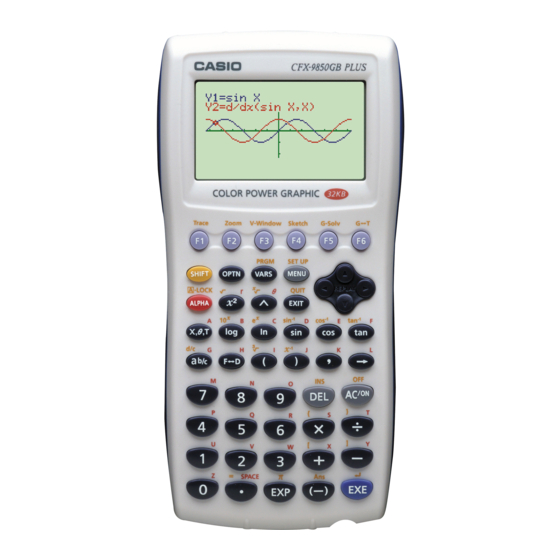Casio CFX-9850GC PLUS Manual Grafik - Halaman 4
Jelajahi secara online atau unduh pdf Manual Grafik untuk Kalkulator Casio CFX-9850GC PLUS. Casio CFX-9850GC PLUS 12 halaman. 6. matrix calculations
Juga untuk Casio CFX-9850GC PLUS: Katalog Produk (16 halaman), Spesifikasi (1 halaman), Panduan Komunikasi (13 halaman), Manual Program (18 halaman), Baca Panduan Pertama Ini (13 halaman), Manual Fungsi (14 halaman), Manual Grafik (8 halaman), Manual Grafik (6 halaman), Manual Grafik (12 halaman), Manual Grafik (12 halaman), Manual Grafik (12 halaman), Manual Grafik (10 halaman), Manual Perhitungan (13 halaman), Manual Perhitungan (18 halaman), Manual Perhitungan (15 halaman), Manual Bilangan Kompleks (6 halaman), Manual Perhitungan (6 halaman), Manual Perhitungan (20 halaman)

